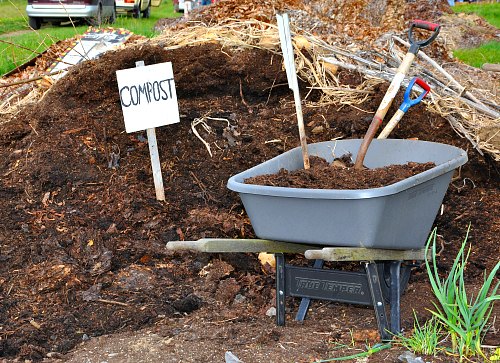Contents
- 1 Does compost get better with age?
- 2 Does the age of compost matter?
- 3 How long does compost need to age?
- 4 What happens to compost over time?
- 5 What happens if you use compost that is not ready?
- 6 When should I stop adding to my compost pile?
- 7 How often do you need to empty a compost bin?
- 8 What do I do when my compost bin is full?
- 9 How long does it take for a compost bin to start working?
- 10 Author
Does compost get better with age?
Yes, compost typically improves with age. Mature compost, often referred to as “well-rotted” or “finished” compost, is darker, crumbly, and rich in humus. This type of compost has a higher nutrient content, is less likely to burn plants, and has a more stable and pleasant earthy smell. Additionally, mature compost is teeming with beneficial microorganisms, which are essential for soil health and plant growth. As compost ages, it becomes more valuable as a soil conditioner and source of nutrients for your garden.
Does the age of compost matter?
The age of compost does matter, especially when it comes to its suitability for various gardening applications. Young or unfinished compost can be too rich in unbroken-down organic matter, potentially harming plants if applied directly. In contrast, well-aged compost is more stable, balanced, and suitable for use as a soil amendment, mulch, or potting mix component.
How long does compost need to age?
The time required for compost to age can vary, but a general guideline is about 6 months to 2 years. Compost that has aged for at least a year is often considered mature and ready for use. However, the exact duration depends on factors such as composting methods, materials used, and environmental conditions.
What happens to compost over time?
As compost ages, the organic materials within it continue to break down and decompose. This process results in the transformation of raw organic matter into a stable, humus-rich, and nutrient-dense material. The compost becomes more crumbly, less likely to heat up, and contains a higher concentration of beneficial microorganisms. The aging process makes compost more suitable for a wider range of gardening applications.
What happens if you use compost that is not ready?
Using compost that is not fully matured or “not ready” can potentially harm your plants. Immature compost may contain unbroken-down organic matter, which can deplete nitrogen from the soil as it decomposes, leading to nutrient imbalances. It can also generate excess heat, potentially burning plant roots. It’s important to use well-aged, finished compost to avoid these issues.
When should I stop adding to my compost pile?
You can continue to add materials to your compost pile or bin throughout the year, with no specific “stop” point. However, if you want to harvest finished compost, you should stop adding fresh materials a few months before you plan to use the compost. This allows time for the remaining contents to fully decompose and reach maturity.
How often do you need to empty a compost bin?
The frequency of emptying a compost bin depends on its size and your composting practices. Smaller bins may need emptying more frequently, while larger bins or piles can be emptied less often. On average, you can expect to harvest finished compost from a bin or pile every 6 to 12 months.
What do I do when my compost bin is full?
When your compost bin is full, you have several options. You can stop adding new materials and allow the existing contents to decompose further. Alternatively, you can transfer the partially composted materials to another bin or pile, leaving room in the original bin for new additions. If you have sufficient space, consider having multiple compost bins in various stages of decomposition.
How long does it take for a compost bin to start working?
The time it takes for a compost bin to start working varies depending on several factors. Generally, you should start seeing signs of decomposition within the first few weeks to a few months, such as a rise in temperature, microbial activity, and a reduction in the volume of the materials. With proper management, a well-maintained compost bin can produce finished compost in about 6 to 12 months. Effective composting relies on maintaining the right balance of green and brown materials, proper aeration, and moisture levels within the bin.


